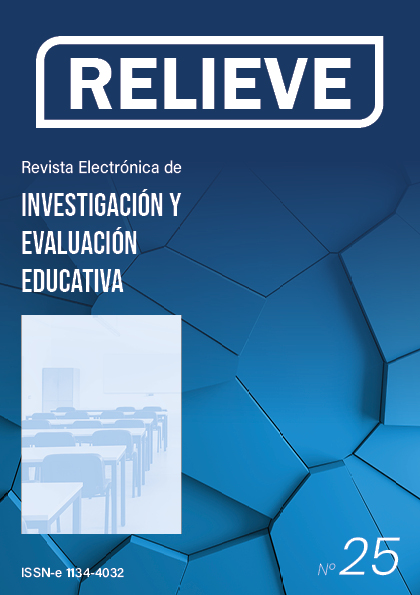Service-learning in the Spanish university system: A study based on deans’ perception
DOI:
https://doi.org/10.7203/relieve.25.2.15029Keywords:
Higher Education, Competences, Civic Engagement, Service-learning, Deans, Institutionalization.Abstract
The third mission of the University consists of returning to society part of what it receives. This way of understanding the relationship between society and university involves the use of new teaching/learning methodologies, in which teachers cease to be mere transmitters of knowledge, and students acquire an active and critical role in response to the social needs. Service-Learning is a methodological strategy that combines the theoretical training in a field of knowledge and the implementation of the knowledge acquired through provision of a service to the community. This methodology is appropriate to make that third mission of the university institution possible. The objective of this work is to understand the willingness of the Spanish faculties or university schools to promote and create opportunities that lead to the implementation of service-learning projects in their centers. Among the conclusions of the study, the institutional perception should be pointed out. According to it, the use of this methodology turns the university into a more open institution, which interacts with the community and the environment, expanding its training field beyond the technical and scientific knowledge, in order to provide a service of social transformation
Downloads
Downloads
Published
How to Cite
Issue
Section
License
The authors grant non-exclusive rights of exploitation of works published to RELIEVE and consent to be distributed under the Creative Commons Attribution-Noncommercial Use 4.0 International License (CC-BY-NC 4.0), which allows third parties to use the published material whenever the authorship of the work and the source of publication is mentioned, and it is used for non-commercial purposes.
The authors can reach other additional and independent contractual agreements, for the non-exclusive distribution of the version of the work published in this journal (for example, by including it in an institutional repository or publishing it in a book), as long as it is clearly stated that the Original source of publication is this magazine.
Authors are encouraged to disseminate their work after it has been published, through the internet (for example, in institutional archives online or on its website) which can generate interesting exchanges and increase work appointments.
The fact of sending your paper to RELIEVE implies that you accept these conditions.














